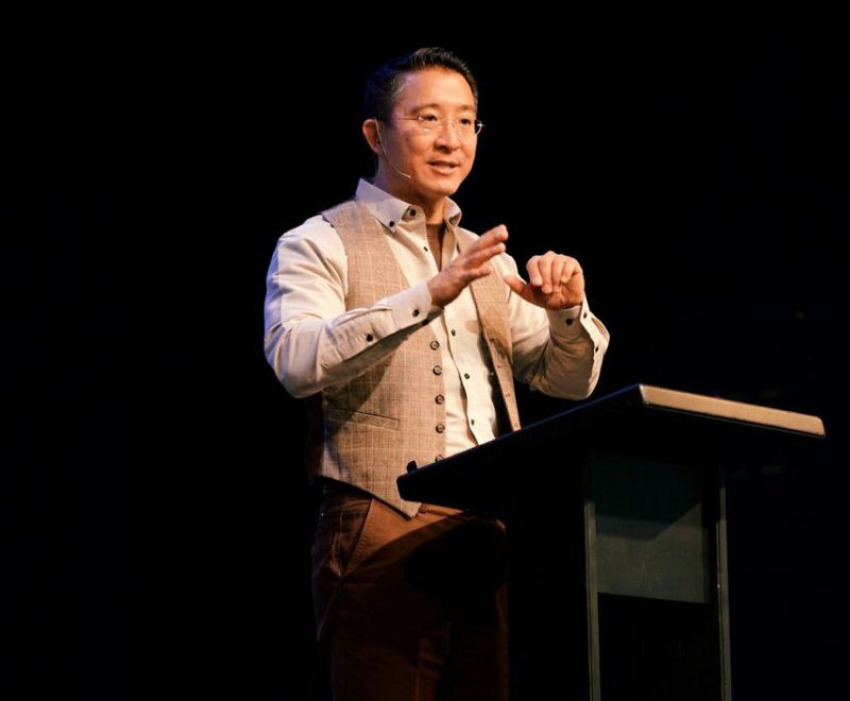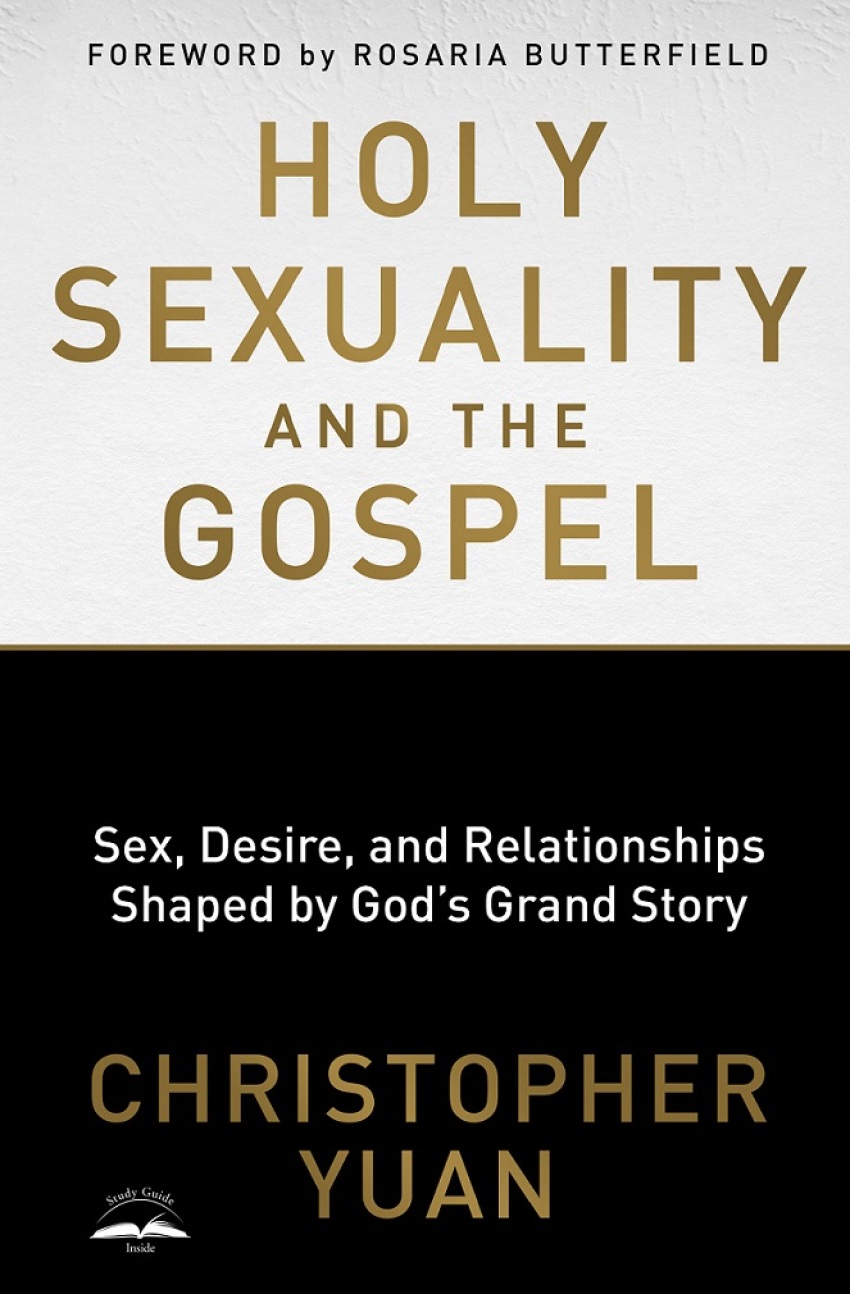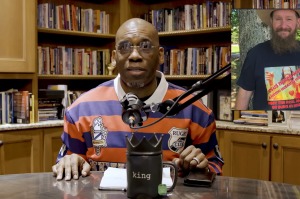Christian Bible teacher with same-sex attraction releases new book on ‘Holy Sexuality,’ witnessing to LGBT community

Bible teacher and author Christopher Yuan says he faced rejection from his non-Christian parents when, in his early 20s, he revealed to them that he was gay, and thus began leading a life of sexually risky behavior, substance abuse, and even drug dealing.
After his parents converted to Christianity they welcomed him and eventually, after he was convicted of drug-dealing, he, too, became a follower of Christ.
In an interview with The Christian Post earlier this month, Yuan explained that his new book, Holy Sexuality and the Gospel: Sex, Desire, and Relationships Shaped by God's Grand Story,“grew out of” an earlier book he co-wrote with his mother about their faith journeys, titled Out of a Far Country: A Gay Son's Journey to God, A Broken Mother's Search for Hope that was released in 2011.
Yuan’s earlier book introduced a concept he called “holy sexuality.”
“I define ‘holy sexuality’ — not heterosexuality, not homosexuality, but holy sexuality — as chastity in singleness and faithfulness in marriage,” explained Yuan to CP.
“I just knew that I had to flesh out that concept more. So this new book is really just fleshing out that concept of ‘holy sexuality.’”
The following is an edited transcript of Yuan's Q&A with The Christian Post.

CP: At the start of the book, you said that many perspectives on homosexuality begin with the "common intent" of "love." Do you believe people in this debate struggle to accept that those who think differently have good intentions?
Yuan: I think they assume everyone, that the people we disagree with have bad intentions. And this applies broadly to not just sexuality or different views of sexuality, but politics, and all of that. I think we need to just assume that this person isn’t completely just evil and just out to get people. There are a few people that are like that, but I would argue [many are not].
It’s this complete distortion of what is good and what is love. Today, the mantra of the gay community is “love is love.” At the surface, that seems so “of course it is. Love is love.” But I would argue not all love is the same.
I think a wife beater, a man who beats his wife, would argue that he loved his wife. And, what’s even just as sad, is that the wife who gets beat would even argue that her husband loves her. I think even that a father sexually abusing his young daughter would even argue that he loves his daughter.
I don’t think that we can say that “love is love” in a sense that all love is the same. We ought to not have a distorted view of love. And people, especially sometimes Christians who say ‘well, we just need to love,” what they mean by love is not the biblical understanding of love.
Basically, what I think what they’re implying is we basically throw out God’s truth and we just show grace, but that’s at the expense of truth.
CP: In the book, you stressed the importance of understanding sexuality through the dual ideas of the image of God and the doctrine of sin. What danger is there in not understanding sexuality through those two ideas?
Yuan: People who argue and defend biblical sexuality oftentimes forget this important thing. One of the first things is the image of God is such an important concept that we can’t even get out of Chapter 1 of the first chapter of the Bible before we’re introduced with this very important concept. That we all are created in the Image of God. And what that means quite simply is that every person, whether they have accepted Christ or not, whether they are living in sin or not, everyone is created in God’s Image. Which means that we all have value, God loves us as the pinnacle of His creation. And so as believers, we need to remember that about everyone.
When we talk about people in the gay community as our enemies, or our opposites, or talking to them in disdain, we forget that they are still God’s Image-bearers. And they are indeed of grace, just as the same grace that we received that we didn’t earn and that we need to treat people in that way.
Another misunderstanding is misunderstanding the doctrine of sin.
We know that with our sinful temptations and our struggle with sin, the main cause of that is original sin, that we all have a sin nature. And one mistake, the second mistake that I want to say that we often make is that many times I hear people who try to find this root causes in our past. or in people’s past. To find out what exactly went wrong in their childhood that caused them to have same-sex attractions. And when they do that, they forget the doctrine of sin. That the main cause, if there is going to be one root cause, it would be our sin nature.
When people list what they say are root causes, those aren’t root causes, but they’re influences. I call them catalysts.
Another misunderstanding is this perception that sometimes you hear now, these newer Christians who identify as gay celibate Christians who say, “My sexual orientation can be redeemable or sanctifiable,” and they also misunderstand this concept of sin nature. Because if same-sex sexual behavior is sin, which it is, then also the desire for that also is sin. Then sexual orientation is basically a pattern of these types of desires and we would then know that those desires stem from our sin nature. And to say that somehow I can bring good out of our sin nature misunderstands that.
And lastly, there is this concept that many unbelievers believe, I would say most unbelievers believe this and also some Christians are now beginning to believe this — that somehow we are born gay and that’s just part of who we are.
But again, understanding the image of God and the doctrine of sin helps us to understand sexuality; that is, our sexual orientation is not who we are, it’s how we are. And who we are is created in God’s image but that image has been distorted, from Genesis 3, by sin. And even though people might say, “Well, I’m born this way, I’m born that way,” well, Jesus was so clear in His own words. In John 3 He says: “You must be born again.”
So even though people would say, “I am born gay” or “I am born an alcoholic” or whatever you might say, God is so clear in sending His Son who said: “You must be born again.”
CP: At certain points in your book, you critique the claims of Matthew Vines' book, God and the Gay Christian: The Biblical Case in Support of Same-Sex Relationships. What would you say is one of the major problems with Vines' work?
Yuan: For one, he’s really just rehashing some other books that he read, so it isn’t anything new. He does make the gay affirming misinterpretations a little bit more readable for the lay audience. But his mistake is simply interpretation.
He said he is simply using context, but it’s the wrong context in many different ways. And more importantly, he ignores reading things canonically, that is when we read First Corinthians 6, we need to read that in light of the rest of the whole Bible, from Genesis all the way to Revelation. For example, reading First Corinthians 6 in light of Leviticus. Because that will help guide us.
We use the Bible to help us interpret the Bible. That doesn’t mean we ignore context, but we do use the Bible’s context. It does have priority over other contexts, because we could use context and use the wrong context.
CP: Near the end of your book, you focused on how the Church should and should not witness to LGBT individuals. As you know, recently there was a gathering of LGBT Christians known as the Revoice Conference. What was your opinion of Revoice?
Yuan: I do want to commend that Revoice. They do believe that same-sex relationships are sinful. So I commend them in that and they even will defend that and argue against people like Matthew Vines and Justin Lee.
Yes, they believe that same-sex sexual relationships are sinful, but then they will broadly say that non-sexual same-sex relationships and even desire is not sinful. And this is where they make a mistake. They don’t differentiate between same-sex platonic desires or relationships and same-sex romantic desires and relationships. This is a big mistake that they make, because they think that these romantic types of relationships are OK, they just need to be careful with them so that they don’t get hurt, but don’t try to be careful with them because its sin.
Another thing is that the approach has been kind of a very typical secular approach from not only the gay community, the LGBTQ+ community, but also, what we find in the secular community as well where they have taken the concepts of identity and made it political — identity politics or what the world calls intersectionality. In other words, if you a white male, then you no longer have authority and you are ignorant. And only people who have a minority victim status have a voice and only people who are victims really understand the issue and they must have a voice, too; because they now have authority because of that victim status and everyone else who doesn’t have that, has no right to speak.
And so, Revoice kind of now just repackaged it and puts a veneer of Christianity on it, and makes it seem that everyone who's same-sex attracted and gay are the victims, and the white male Christian — and specifically the evangelical church — is now the perpetrator. I find that highly problematic.
The message is “you’re the problem and we’re here to bring the solution,” whereas it should be “we all are the problem, every one of us, and Christ is the solution.”



























